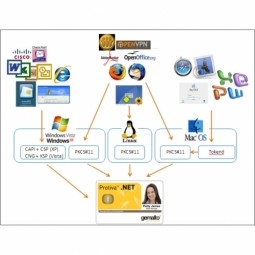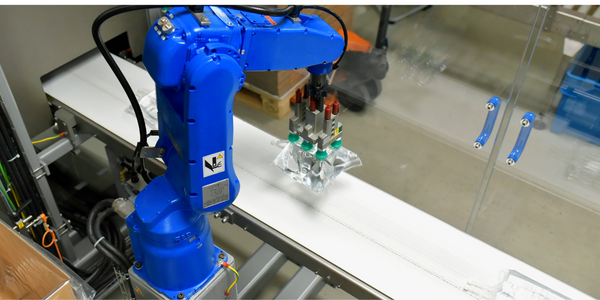Customer Company Size
Large Corporate
Region
- Europe
Country
- United Kingdom
Product
- DDN’s GS7K®
- WOS object storage
Tech Stack
- VMware HorizonView
- NFS – ESXi Data Store
- iSCSI – ESXi and Windows servers
Implementation Scale
- Enterprise-wide Deployment
Impact Metrics
- Productivity Improvements
- Digital Expertise
Technology Category
- Infrastructure as a Service (IaaS) - Cloud Storage Services
Applicable Industries
- Life Sciences
Applicable Functions
- Product Research & Development
Use Cases
- Predictive Maintenance
- Edge Computing & Edge Intelligence
Services
- Cloud Planning, Design & Implementation Services
- Data Science Services
About The Customer
The Institute of Cancer Research, London, is one of the world’s most influential cancer research organizations, with an outstanding record of achievement dating back more than 100 years. The Institute of Cancer Research (ICR) is led by Chief Executive, Professor Paul Workman — an expert in cancer drug discovery. It is a world leader in identifying cancer genes, discovering cancer drugs and developing precision radiotherapy. Together with hospital partner, The Royal Marsden NHS Foundation Trust, the pair is rated in the top four centers for cancer research and treatment worldwide. With 140 research teams focused on driving the future of dynamic adaptive therapies, ICR must be diligent in adapting support services.
The Challenge
The Institute of Cancer Research (ICR) in London, a world leader in identifying cancer genes, discovering cancer drugs and developing precision radiotherapy, needed a single, central storage infrastructure that would enable users to collect and analyze all types of active research data. The research data service (RDS) had to be broad enough to support eight research divisions and all types of biology, chemistry and physics-related data. It needed to be able to pull in massive amounts of data from different scientific instruments and next-generation sequencers while connecting to various research services from laptops and desktops of every flavor, to high performance supercomputers with CPUs and GPUs.
The Solution
ICR set out to deploy a scalable solution that would host a wide range of scientific and clinical data. They chose DDN’s GS7K® as a stretched cluster with synchronous mirroring between sites. Additionally, 4PB of WOS object storage was installed to provide a tier that is protected using Global ObjectAssure® (GOA) advanced erasure coding. The sites are connected with private 10Gbps network links, with an option to increase bandwidth as needed. The infrastructure is extremely resilient with replication and erasure coding across three geographically separate locations, snapshots. The new RDS service is designed to be scalable, cost-effective, and highly resilient – an infrastructure scalable both in front-end performance and back-end capacity that can easily increase to meet changing demand.
Operational Impact
Quantitative Benefit

Case Study missing?
Start adding your own!
Register with your work email and create a new case study profile for your business.
Related Case Studies.

Case Study
Corporate Identity Solution Adds Convenience to Beckman Coulter
Beckman Coulter wanted to implement a single factor solution for physical and remote logical access to corporate network. Bechman Coulter's users were carrying smart card badges for doors, but also needed a one-time password token to access to our corporate network when they were not in the office. They wanted to simplify the process.

Case Study
Embracing Business Success in Real Time
· Increase control over growing Big Data to improve business decisions · Manage data for 28,000 biotechnology stockkeeping units in the fields of microbiology, molecular biology, animal cell cultures, plant tissue cultures, and lab ware for laboratory chemicals · Accelerate report generation and analysis with real-time data

Case Study
Flow Robotics: Scaling Up Production and Accelerating Product Development with IoT
Flow Robotics, a Danish manufacturer, developed flowbot™ ONE pipetting robots to alleviate the strain on bioanalysts in life-science laboratories and hospitals across Europe. These robots were designed to automate part of the testing process, speeding up the time it takes to produce results and reducing pressure on staff. However, the company faced challenges in scaling up production and accelerating product development. High workloads and physically challenging conditions have long been an issue for laboratory professionals. Flow Robotics estimates that around half of medical lab technicians carry out the same arm movements for at least a quarter of their working day. The American Society for Clinical Pathology reported that 85% of laboratory professionals feel burnt out; 36% struggle with inadequate staffing; and 32% face a heavy workload and pressure to complete all testing on time.
Case Study
Material Intelligence at Ethicon: Sustaining Medical Device Manufacturability and Improving Patient Care
Ethicon, a world-class medical devices company, faced several challenges in its operations. The rapid selection of manufacturing materials compliant in global markets was critical to assure patients, practitioners, and purchasing organizations of the biocompatibility of their medical devices. Ensuring supply chain continuity and minimizing risks of obsolescence for medical devices due to regulatory changes were also crucial in meeting Ethicon’s ongoing commitment to maintaining patient care. Furthermore, the engineers at Ethicon were developing the next generation of medical devices and needed to access historical material data to accelerate new product development. The process of centralizing and digitalizing its materials information was a significant challenge that Ethicon needed to overcome.

Case Study
Revolutionizing Aerospace Industry with 3D Printing: A 63% Lighter Titanium Part
GE Aviation, a renowned name in the aerospace industry, recognized the potential of 3D printing technology in transforming the sector. The primary challenge was to reduce the weight of the aerospace parts, which would directly impact the fuel costs. A lighter airplane would mean lower fuel consumption, leading to cost savings and a smaller carbon footprint. However, achieving this weight reduction without compromising the strength and functionality of the parts was a significant challenge. Traditional manufacturing methods were not able to provide the desired weight reduction while maintaining the required stiffness and strength of the parts. The challenge was to find a solution that could create strong, light, and functional aerospace parts.
Case Study
IWT's Transformation: Customizing with Efficiency in IoT
IWT, a company specializing in the design, manufacture, and installation of washing systems for the life sciences and pharmaceutical industries, faced a significant challenge in managing its wide product portfolio. The company manufactures 45 different models, 60% of which are customized to some degree. This high level of customization, combined with limited production quantities, necessitated a controlled process for managing the release of engineering changes. The goal was to achieve efficiency, reduce process time, and better coordinate production throughout the organization. The need for strict compliance in heavily regulated industries further complicated the situation. IWT's existing PLM journey with Dassault Systèmes’ SOLIDWORKS for 3D CAD and Enovia for managing CAD data and Bills of Materials (BOMs) was proving inadequate. The system had limited part classification, no workflow, and no tool to ensure data consistency. The management of non-CAD documents was also a challenge, with information often difficult to find and access.







